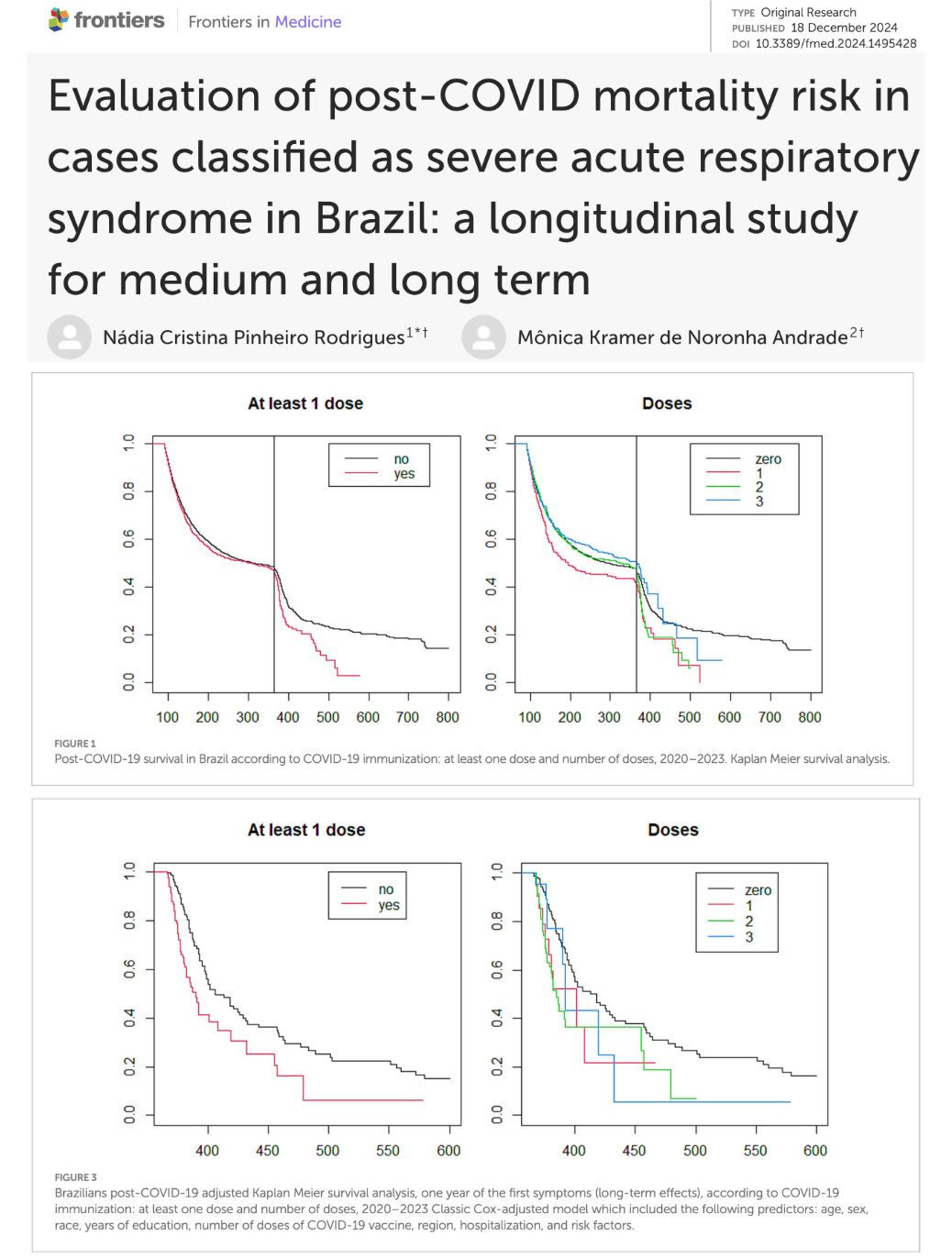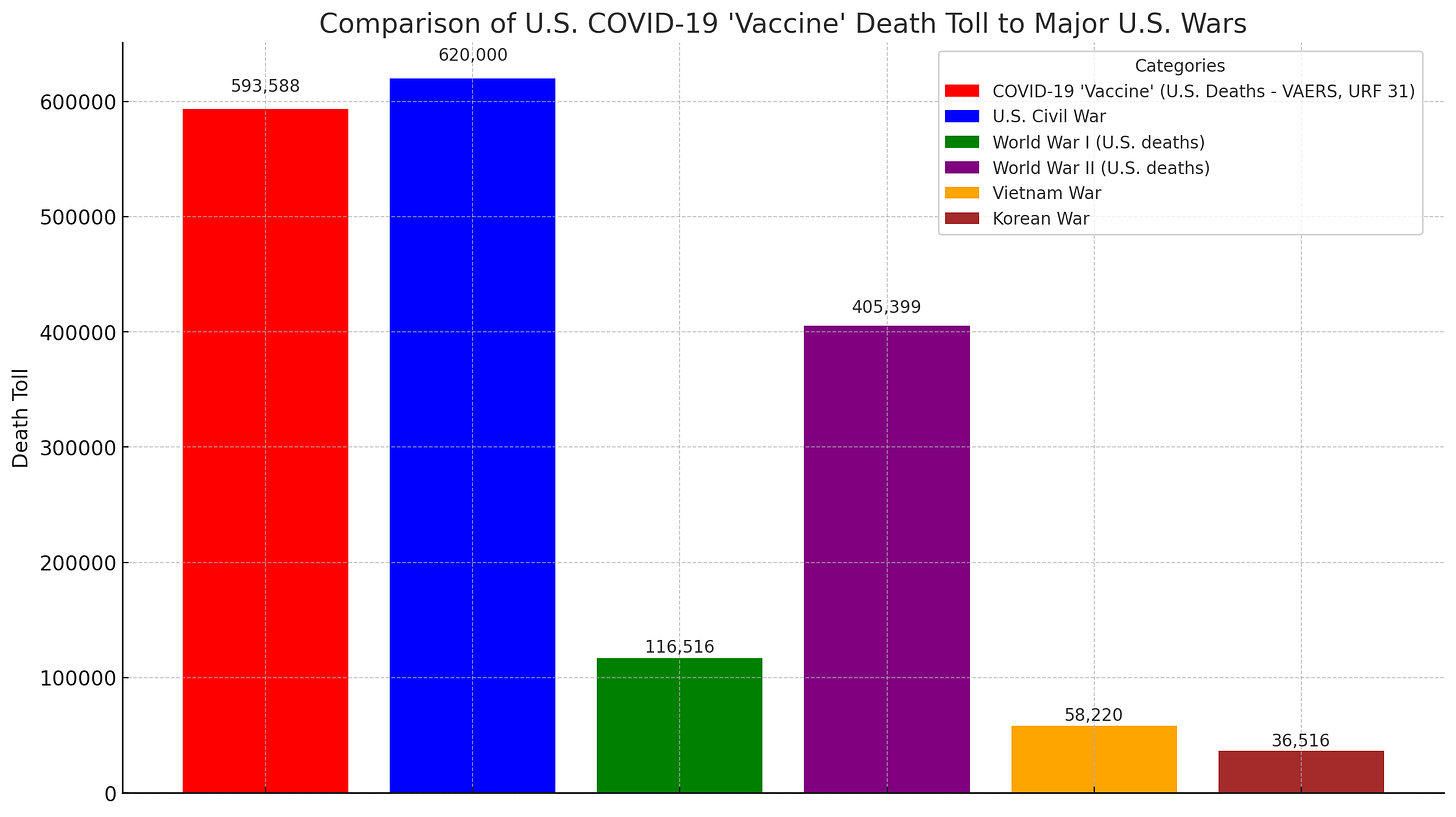BREAKING - New Study Finds COVID-19 'Vaccination' Doubles Risk of Post-COVID Death (2024)
Objective: This study aims to investigate the factors associated with post-COVID mortality of severe acute respiratory syndrome (SARS) cases from 2020 to 2023 in Brazil, along medium and long term.
Methods: Retrospective cohort study using notification data of SARS classified as COVID-19 from the Brazilian National Information System, “Sistema de Vigilância Epidemiológica (SIVEP),” during the period 2020 to 2023. Data included demographics, comorbidities, vaccination status, number of COVID-19 vaccine doses, city of residence, and survival outcomes. Classic Cox, Cox mixed effects, and Cox fragility models were used to assess medium and long-term risks of dying post-COVID.

As illustrated in the Kaplan Meier survival curves, over the long-term, those that refused COVID-19 injections were less likely to die compared to vaccinated individuals. While vaccination initially reduced post-COVID mortality risk in the medium term, this protective effect completely reversed in the long term, ultimately doubling the risk of death.
The authors said that the ‘protective effect’ in the medium term could have been due to the following factors:
(1) Vaccination may be associated with healthier behaviors or greater health awareness. For example, vaccinated individuals may be more likely to follow other public health recommendations, such as staying up-to-date with preventive health measures, having regular medical check-ups, or adopting healthier lifestyles. This could lead to a reduction in the risk of death from other causes in the medium term.
(2) Access to healthcare – since people with comorbidities were prioritized for COVID-19 immunization, these populations may also have benefited from increased medical monitoring and access to healthcare, which may have contributed to a reduction in the risk of death from other causes.
The authors then gave possible reasons behind the complete reversal to doubling the risk of death in the long-term:
This study corroborates Alessandria et al, who found that COVID-19 ‘vaccination’ reduced life expectancy by 37% and increased all-cause death risks during the 2-year follow-up period:(1) Adverse effects of the vaccines – while COVID-19 vaccines have proven to be safe for the vast majority of people, there are concerns about potential long term adverse effects (although rare), such as myocarditis, thrombosis, or other rare conditions associated with vaccination. These effects may be more pronounced in some groups, particularly in more vulnerable individuals, which could contribute to an increased risk of death from other causes over time;
(2) The COVID-19 vaccine may have an indirect effect on the immune system - for people with pre-existing conditions or those with weakened immune systems (such as patients with autoimmune diseases or those on immunosuppressive treatments), the immune response to the virus may have unexpected or complex effects that increase vulnerability to other infections or lead to complications of pre-existing conditions.

These data help explain why at least 17 million people may have died from COVID-19 ‘vaccination’ as demonstrated by Rancourt et al. Life-reducing injections should NOT be recommended for anyone and must be immediately removed from global markets to safeguard the public from further injury and death.
In the United States, COVID-19 genetic injections are estimated to have caused more deaths than American casualties in WWI and WWII combined. The death toll even rivals the scale of the Civil War. This is a profound national tragedy, and accountability is urgently warranted.

About the Author: Nicolas Hulscher, MPH. Epidemiologist and Foundation Administrator, McCullough Foundation.






.png)

Comments
Post a Comment